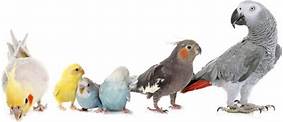Can Pet Birds Make You Sick?
Birds are popular pets, but they can also carry germs that can make people sick. These germs are called zoonoses, and they can be spread through contact with a bird's saliva, droppings, or feathers. Some of the most common zoonotic diseases that can be transmitted from birds to humans include salmonella, E. coli, and鹦鹉热。

How Can Pet Birds Make You Sick?
There are several ways that pet birds can make you sick. These include:
1. Contact with bird droppings: Bird droppings can contain harmful bacteria, viruses, and parasites. If you come into contact with bird droppings, you may become infected with one of these organisms.
2. Contact with bird saliva: Bird saliva can also contain harmful germs. If a bird bites or scratches you, you may become infected with a zoonotic disease.
3. Inhalation of bird dander: Bird dander is a fine dust that is produced by bird feathers. When you inhale bird dander, you may develop respiratory problems, such as asthma or allergies.
What Are the Symptoms of Zoonotic Diseases?
The symptoms of zoonotic diseases can vary depending on the specific disease that you have. However, some common symptoms include:
Fever Diarrhea Vomiting Nausea Headache Muscle aches Fatigue Skin rash
How Can I Prevent Getting Sick from My Pet Bird?
There are several things you can do to prevent getting sick from your pet bird. These include:
1. Wash your hands frequently: Wash your hands thoroughly with soap and water after handling your bird, its cage, or its food and water bowls.
2. Keep your bird's cage clean: Clean your bird's cage daily to remove any droppings, feathers, or food debris. Use a disinfectant to clean the cage and all of the bird's toys and accessories.
3. Don't let your bird kiss you or share your food: Avoid contact with your bird's mouth or saliva. Do not let your bird eat from your plate or drink from your cup.
4. Keep your bird's cage out of the kitchen and other areas where food is prepared or eaten: This will help to prevent the spread of germs from your bird to your food.
5. Get your bird vaccinated: There are vaccines available for some zoonotic diseases that can be transmitted from birds to humans. Talk to your veterinarian about whether or not your bird should be vaccinated.
When Should I See a Doctor?
If you develop any symptoms of a zoonotic disease, see your doctor right away. Early diagnosis and treatment can help to prevent serious complications.
Declaration: All article resources on this website, unless otherwise specified or labeled, are collected from online resources. If the content on this website infringes on the legitimate rights and interests of the original author, you can contact this website to delete it.





